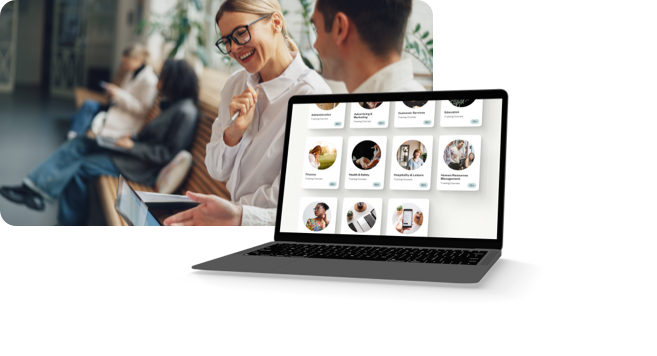
Gen Z employees are entering the workforce in ever greater numbers, armed with new expectations around training and development. They want employers who offer career growth, skills development and forward-looking learning opportunities. For UK SMEs, this presents both a challenge and an opportunity.
According to a report in HR Drive, while younger employees may be more comfortable embracing all-things AI, they’re also actively seeking roles which prioritise a ‘growth mindset’. Deloitte’s recent survey agrees: providing employees with L&D opportunities is vital. Gen Zs want employers who are investing in their long-term growth, not just their short-term obligations. But in sectors where compliance training is mandatory – from health and safety to GDPR – many SMEs are still delivering training in outdated formats that fail to connect with the younger working generation.
So, how can UK SMEs make sure compliance training is relevant, engaging and aligned with the career growth expected by the youngest working generation?
Compliance training should be your baseline, not your end goal
Every SME has compliance requirements. Whether it’s mandatory health and safety training, GDPR awareness courses, or safeguarding modules, these are non-negotiable. But for Gen Z, this kind of training is seen as the bare minimum.
If your L&D strategy stops here, you risk failing to meet their expectations and losing them to employers who do. SMEs can’t afford high turnover – particularly in a competitive labour market.
This is why compliance training needs to be reframed. Instead of positioning it as a tick-box exercise, businesses should build it into a wider learning culture that supports career progression, resilience and digital readiness.
Why Gen Z disengages from traditional compliance training
One reason compliance training has a poor reputation is that it’s often delivered in dry, one-size-fits-all formats. PowerPoint slides and lengthy printed policy documents won’t work for digital natives who grew up with interactive, mobile-first technology.
For Gen Z, learning needs to be:
- Accessible: bite-sized learning which they can complete on any device, on demand.
- Relevant: with content that’s connected to their job role and career goals.
- Engaging: scenario-based and interactive.
- Varied: offering benefits beyond merely hitting the company’s compliance obligations.
If your training doesn’t meet these expectations, younger employees are more likely to disengage – which can undermine both compliance rates and employee morale.
Building pathways that go beyond the compliance basics
This is where technology can help bridge the gap. An easy-to-use LMS allows small businesses to deliver compliance training in a way that also supports professional development.
For example:
- Create blended learning pathways: pair a mandatory compliance course with a related upskilling course – such as combining GDPR awareness with a course on information governance.
- Offer short courses and soft skills courses too: offer additional learning opportunities covering topics such as wellbeing, personal effectiveness skills and leadership.
- Certification and recognition: make sure courses are recognised by registered training bodies such as CPD and RoSPA, so employees see the value in adding them to their CVs or LinkedIn profiles.
By integrating compliance into a broader learning and development ecosystem, SMEs can ensure employees view training as an investment in their future.
Compliance plus growth: lessons from construction SMEs
In our recent blog looking at why construction SMEs need to update compliance processes, we highlighted how younger workers entering trade industries expect digital tools, flexible training and clear pathways for progression.
The same principle applies across all sectors. Whether you’re in health and social care, education, retail or hospitality, your compliance training needs to be modern, accessible and aligned with the expectations of your workforce.
Future-proofing SME training strategies
Compliance training will probably become even more complex as regulations evolve over time. At the same time, employees will expect training that keeps them competitive in an AI-driven workplace.
For SMEs, the smartest approach is to stop seeing compliance and career growth as separate entitles. Instead, view them as two sides of the same coin. One protects the business from risk, the other builds employee loyalty and capability. Together, they form a training strategy that is both compliant and future-ready.
And as we know, Gen Z want growth mindset jobs where training supports their long-term career ambitions. SMEs that rise to the challenge will not only reduce compliance risks but also boost recruitment, retention and engagement.
If you’d like to hear more about how Staff Skills academy+ can help you make this a reality, why not book a call with us today.







